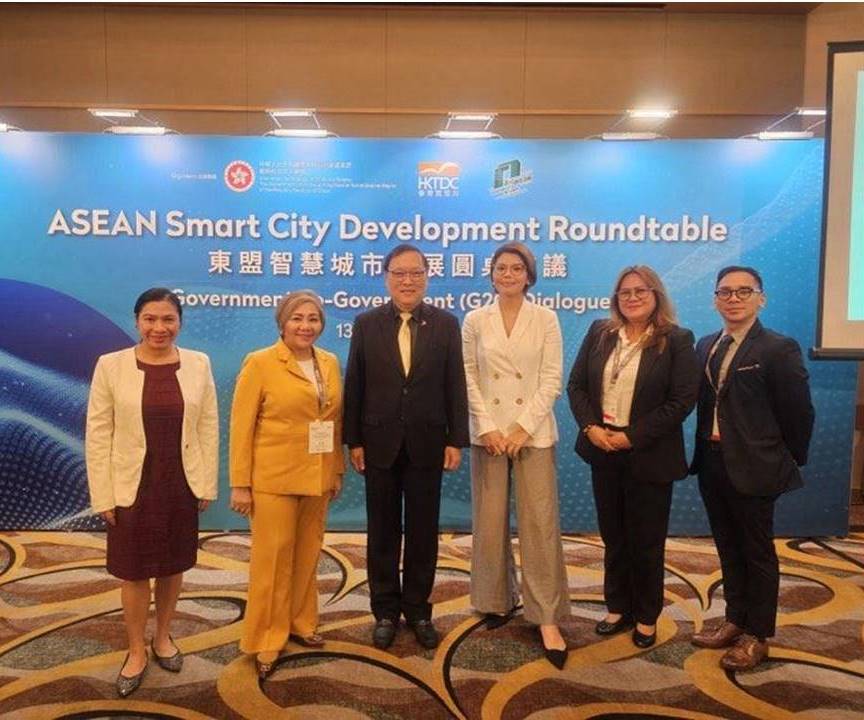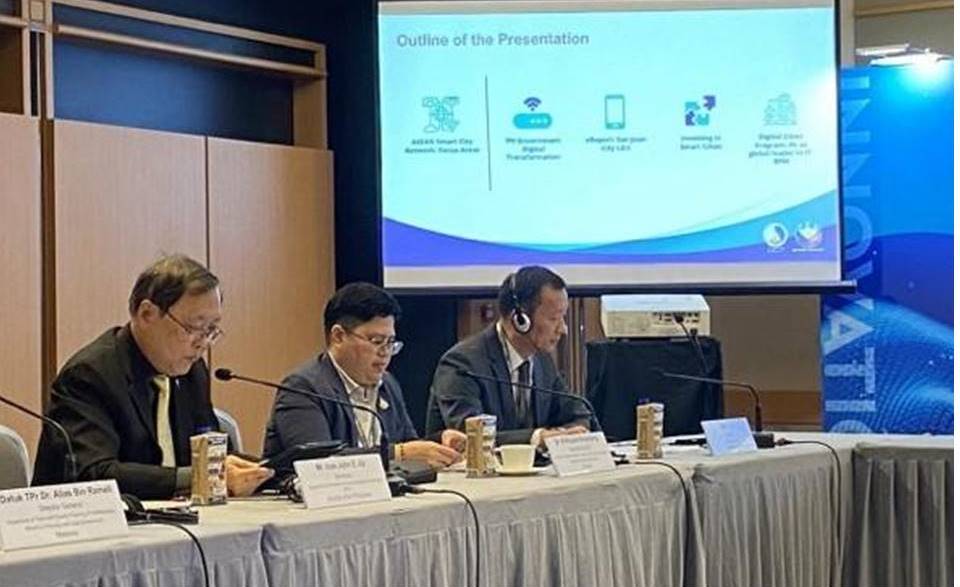
HONG KONG, 22 April 2024 – Secretary Ivan John E. Uy of the Department of Information and Communications Technology (DICT) and Ms. Karen G. Magno, Manager of the Subic Bay Metropolitan Authority (SBMA), delivered presentations at the Roundtable side events of the 2nd InnoEx, which was held from 13 to 16 April 2023, at the Hong Kong Convention and Exhibition Centre (HKCEC).
The InnoEx 2024 is jointly organized by the Innovation, Technology and Industry Bureau of the Hong Kong Government, and the Hong Kong Trade Development Council (HKTDC). It is one of Hong Kong’s annual mega-events described as “the premier platform for Smart City innovation and technology commercialization.” The event enables participants to engage with officials from the public sector, and with businesses and tech experts from the private sector to discuss next-gen smart solutions, cutting-edge technologies and disruptive innovations to help establish and develop smart cities around the world. Through InnoEx, policymakers and implementers are able to share their best practices in existing Smart Cities, such as Hong Kong, Singapore, and Nusantara.
InnoEx featured two (2) Roundtable dialogues on ASEAN Smart City Development, one is a Government-to-Government (G2G) dialogue and the other is in a Government-to-Business(G2B) format.
Secretary Uy served as Resource Speaker to the G2G dialogue wherein he emphasized that the goal of digital transformation of the Philippines is based on the directive of President Ferdinand R. Marcos, Jr. in his 2023 State of the Nation Address.
As an essential aspect of Smart City development, Secretary Uy showcased the eGovPH Superapp developed by the DICT. The new government app integrates vital national and local government services, such as eTravel, eHealth, eReport, Green Lanes, and PH Startup Development Program, among others. It is intended primarily to improve public services, as well as to support the tourism and investment programs of the government.
The DICT has already led the digitalization of services of almost half of all the Local Government Units (LGUs) in the Philippines. The government has identified the cities of New Tarlac, Sta. Rosa in Laguna, Cebu, Makati, Quezon, Manila, Pasig and Davao to be future Smart Cities.
DICT also enumerated the many advantages of the Philippines for Smart City development, especially the low cost of service in the country that can be delivered globally, the country’s young and tech-literate workforce, and for having the highest GDP growth rate in Asia and among the ASEAN countries. The Philippines boasts of a 51.2-million human resource pool, with an average of 800,000 graduates every year. The country’s Information Technology and Business Process Management (IT-BPM) industry, which currently brings in US$35 billion in revenue, is expected to further to reach US$59 billion in revenues by 2028.
SBMA’s Manager Magno, on the other hand, participated in the G2B dialogue wherein she presented how Subic Bay Freeport Zone (SBFZ) has been transformed into a nurturing Smart City. SBMA informed the group of SBFZ’s green utilities, such as the 250-Megawatt Solar Power Facility which is currently operating at 172-Megawatt capacity, the introduction of e-vehicles as in-zone mode of transportation, and a general transportation terminal that incorporates smart systems. Among the advantages of SBFZ as a desirable investment destination is its global connectivity, with the presence of nearby airports, seaports and expressways. SBMA’s priority industries are manufacturing, renewable energy, logistics, and tourism. The Tipo Hightech Eco Park, for instance, has industrial, commercial, institutional and residential opportunities for investment.


